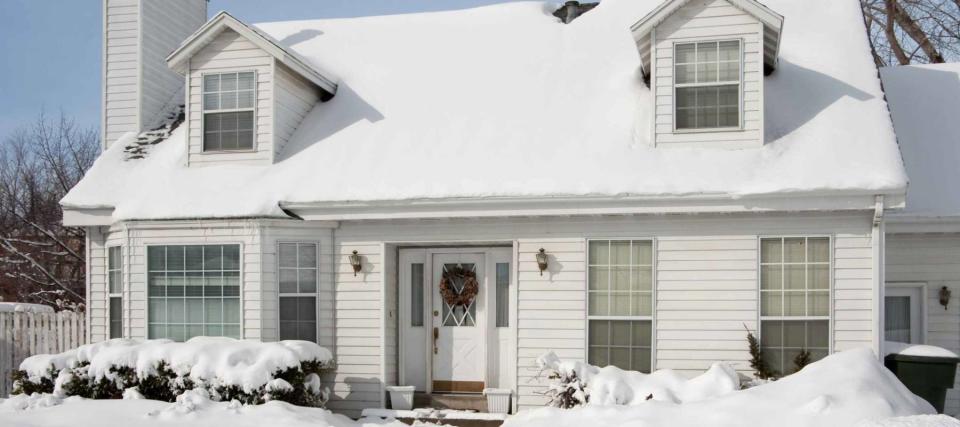How to snag the lowest 30-year mortgage rate for your refinance

Refinancing your home to bag one of today's lowest-ever mortgage rates has been one of hottest homeowner trends of 2020. Lenders have been swamped by refi applications since March, when the Federal Reserve cut interest rates to the bone as COVID-19 first started raging in the U.S.
Mortgage rates keep dropping to new records, giving homeowners a major incentive to refinance and score savings. Rates are now at their 15th new all-time low this year, according to the long-running weekly survey from mortgage giant Freddie Mac, with the average 30-year rate falling below 2.7% for the first time ever.
An estimated 19.4 million Americans could refi and drop their interest rates enough to slash their monthly payments by an average $308, according to research released in mid-November by the mortgage technology and data provider Black Knight.
Want to gift yourself a cheaper loan for the holidays this year? Just follow these five tips tips for getting your best deal when refinancing into a fresh 30-year mortgage.
1. Gather mortgage offers and compare rates

Cast a wide net to find a good rate.
Refinancing into another 30-year loan can be the right choice if your current mortgage is relatively young. You won't be stretching out your interest costs all that much if you've been in the home just a year or two.
Average rates are currently at a record low 2.67%, Freddie Mac reported last week. And that's the average — some lenders are offering 30-year loans at 2.5% or lower.
Rates have fallen so far that you could be an excellent refi candidate if you have a mortgage you took out as recently as the beginning of 2020, when the average was around 3.75%.
But borrowers can't assume they'll always be be presented with the lowest rates possible, because different lenders can present the same homeowner vastly different refinance offers.
To find your best refinance deal, you've got to shop around and compare rates from several lenders. A Freddie Mac study found if you get five rate quotes, you'll pay lifetime costs averaging $3,000 less than if you end your search after receiving only one loan offer.
2. Polish up your credit score

A better credit score brings better mortgage rates. Lenders like borrowers whose credit scores are very good (in the 740-to-799 range) if not exceptional (800 to 850).
To get the kind of refinance loan that will save you hundreds of dollars a month, you'll need a score of at least 720, Black Knight says.
Don't know your credit score? It's easy enough to get a look at it for free.
If you find your credit score needs some help, take steps to raise it:
Pay down your other debt, especially on credit cards. A debt consolidation loan might help you get rid of credit card debt more quickly, and at much lower interest.
Don't open new credit cards, but don't close old ones either. If you do that, you'll reduce your available credit — which could hurt your score.
Get your hands on your credit reports and make sure there are no errors that could be dragging down your credit score. A 2012 study from the Federal Trade Commission found 20% of U.S. consumers had potentially costly mistakes on their credit reports.
3. Show a lender you're invested in your home

A bigger down payment can get you a lower rate.
Refinancing homeowners who have healthy amounts of equity in their homes tend to score the cheapest refinance rates. Equity is the percentage of your home's value that you own, through the payments you've made so far.
To a lender, the ideal refi candidate has at least 20% equity, Black Knight says. If you still have a ways to go to reach the 20% level, you'll want to make a down payment that will put you over the line.
As an added bonus, you won't be forced to buy or keep paying for private mortgage insurance, if you've got at least 20% equity in your home.
Private mortgage insurance offers a lender protection in case a borrower defaults. It's not to be confused with homeowners insurance — which offers you protection if your house is damaged by fires, tornadoes and most other types of disasters.
You should already have home insurance — it's vital, and most lenders require it. But each time your homeowners policy comes up for renewal, go online and get a bunch of rate quotes so you can feel confident you're not overpaying for your coverage.
4. Be willing to pay 'points'

The optional fees known as "discount points" are a type of upfront payment that can help you bag a low 30-year mortgage rate. One point equals 1% of your loan amount and can lower your rate by as much as one-quarter of 1 percentage point, say from 3.2% down to 2.95%.
Jaw-dropping mortgage rates often — though not always — come with points.
You'll need time to break even on the points and other closing costs before you can truly start enjoying the savings from your low mortgage rate.
Lenders have their own individual pricing structures, so don't make the assumption that a loan with points will always have the lowest rate out there. You might find another lender offers a loan with zero points and a better rate.
It's another good reason to seek multiple loan offers and review them side by side — to make certain you get the best mortgage rate available to you.

 Yahoo Finance
Yahoo Finance 